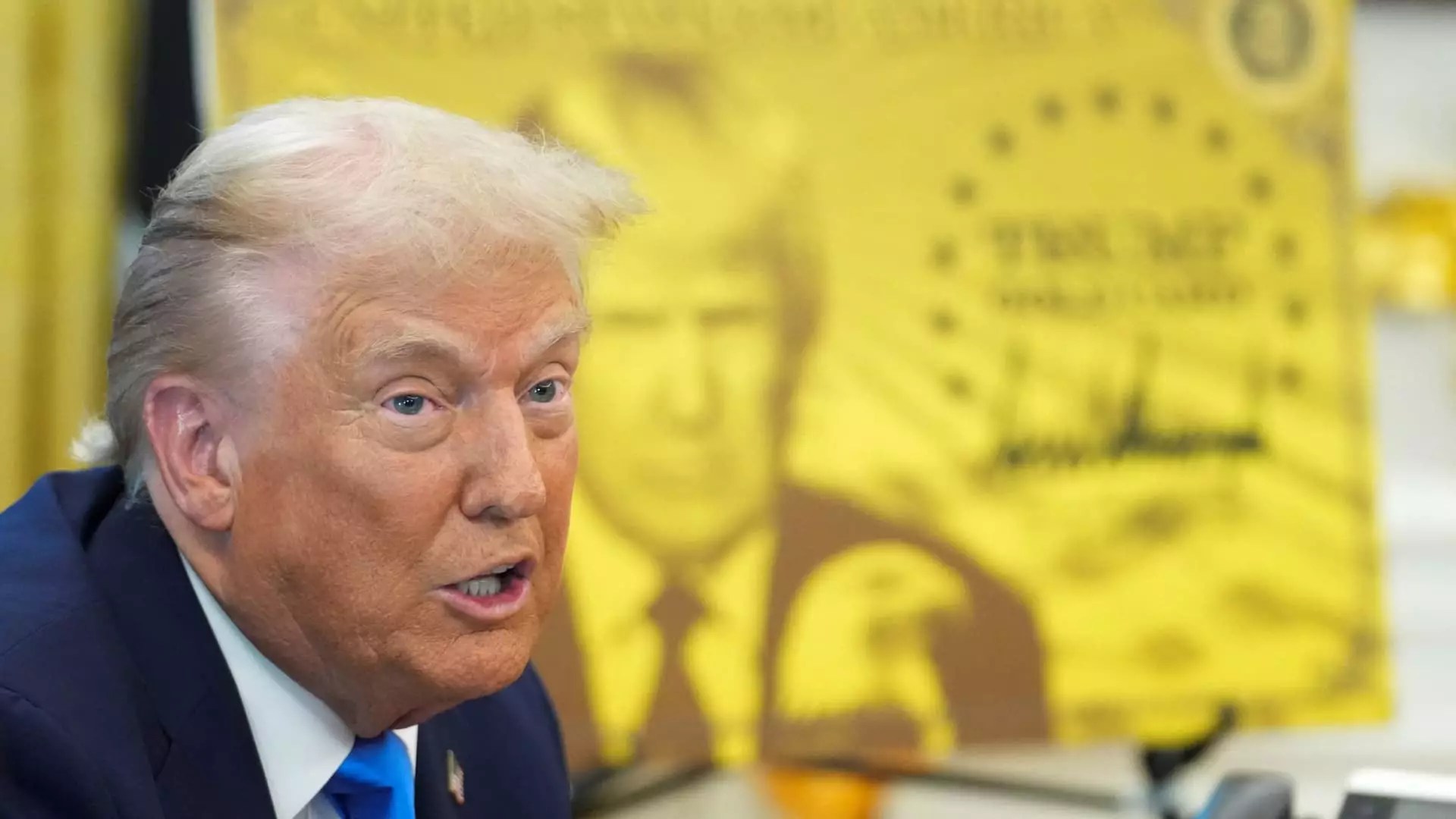The recent announcement by President Donald Trump to impose a staggering $100,000 fee on new H-1B visa applicants marks a dangerous departure from America’s historic role as a magnet for global talent. While ostensibly aimed at curbing abuses and prioritizing American workers, this drastic measure risks entirely undermining the very foundation of the nation’s technological and economic leadership. Instead of embracing immigration as a catalyst for growth, the administration appears increasingly hostile, fueling signs that America’s competitive advantage lies under threat.
Such an exorbitant fee is not merely a bureaucratic hurdle but an insurmountable obstacle for many high-skilled technical professionals seeking to contribute to U.S. innovation. It sends a chilling message that America prefers to shut its borders rather than nurture the brightest minds from abroad—particularly from India, China, and other countries that have historically supplied the tech industry’s pipeline of talent. The move reflects a shortsighted view that believes protectionism alone can sustain economic prosperity, ignoring the reality that talent is inherently mobile, and that penalizing skilled immigrants hampers the growth of fast-moving industries such as technology and finance.
The Immediate Impact on Industry and Innovation
Corporate America, especially behemoths like Amazon, Microsoft, JPMorgan Chase, and Google, have long relied on an international workforce to maintain their competitive edge. These companies employed tens of thousands of H-1B visa holders — a vital resource in a globalized economy. Now, they are faced with an unprecedented and arbitrary fee that threatens to stifle their ability to attract the best minds, and in turn, jeopardizes their innovation pipelines. The fiscal ramifications are concrete; a company employing 10,000 H-1B workers could see costs skyrocket by hundreds of millions of dollars, incentivizing offshoring and automation at the expense of American workers.
Furthermore, the ripple effect on the U.S. economy cannot be overstated. Tech industries fuel productivity, create high-paying jobs, and lead global technological breakthroughs. Imposing such a punitive financial barrier undermines the very competitive advantage that has kept America at the forefront of innovation for decades. It risks creating a less dynamic, less adaptable economy that relies more on existing domestic talent pools rather than attracting the global innovators that drive technological progress.
Diplomatic and Humanitarian Repercussions
On an international level, this policy shift will have serious diplomatic consequences. Countries like India and South Korea, whose nationals form a significant portion of the tech workforce in the U.S., are already assessing the fallout. The Indian government, in particular, emphasized the potential humanitarian disruptions, highlighting how such policies could fracture familial ties and disrupt lives. These measures threaten to foster resentment and mistrust among allied nations, shifting the U.S. away from the image of a welcoming nation for talented professionals seeking freedom and opportunity.
Moreover, the human cost of this move is particularly troubling. Highly skilled immigrants often have families, and extended visas enable them to contribute to multiple facets of society beyond just their professional roles. Dissuading overseas talent from moving to the U.S. undermines this social fabric, impacting not just industry, but cultural openness and the diversity that fuels innovation.
The Political Calculus and Center-Right Resistance
From a center-right liberal perspective, it’s clear that this move is misguided. While national security and protecting American jobs are legitimate concerns, policies that erect barriers on the foundation of innovation threaten long-term economic resilience. Restricting legal immigration to this extent appears to sacrifice America’s competitive advantages in favor of short-term political posturing.
Recent history shows that embracing talented immigrants acts as an economic booster, not a drain. Countries like Canada and Australia have succeeded precisely because of their openness to high-skilled migration. America’s strength lies in its ability to attract and retain the best talent worldwide; this policy undermines that strength. A sensible middle ground would involve cracking down on abuses without sabotaging the entire legal framework that has historically empowered American industries.
Ultimately, imposing such an astronomical fee on H-1B visas—particularly when it seems designed to discourage rather than regulate—risks pushing away economic growth drivers in favor of protectionist rhetoric. It could well accelerate a decline in America’s stature as a hub for innovation, casting doubt on whether the nation can sustain its technological dominance given these inward-looking policies.


Leave a Reply